We stopped at the small town of San Jon, which was founded in 1902 and has a few neat buildings along Route 66.
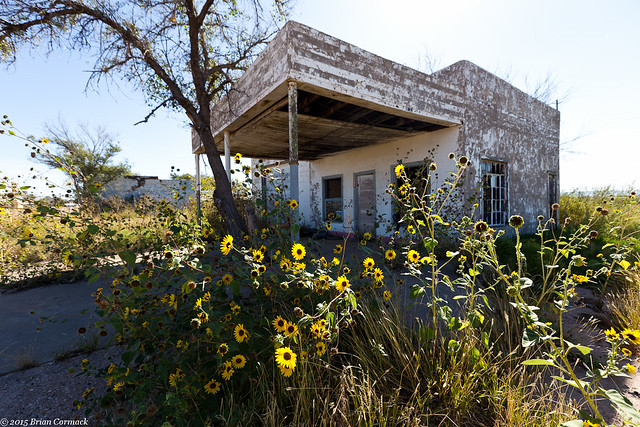
Like so many towns along Route 66, the local economy took a hit when the freeway bypassed the town in the 1980s. A string of old gas stations and hotels sits along Route 66 here, all of them long closed.
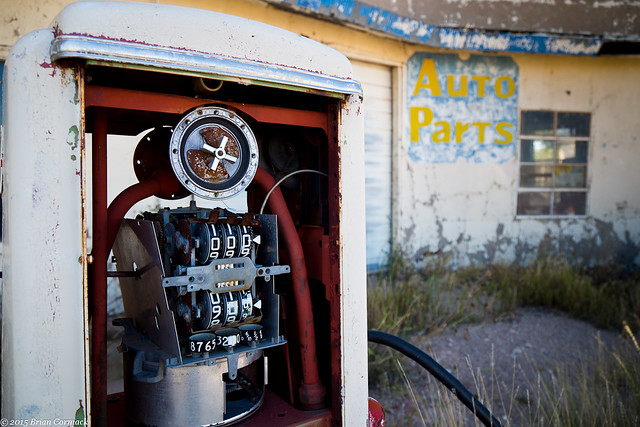
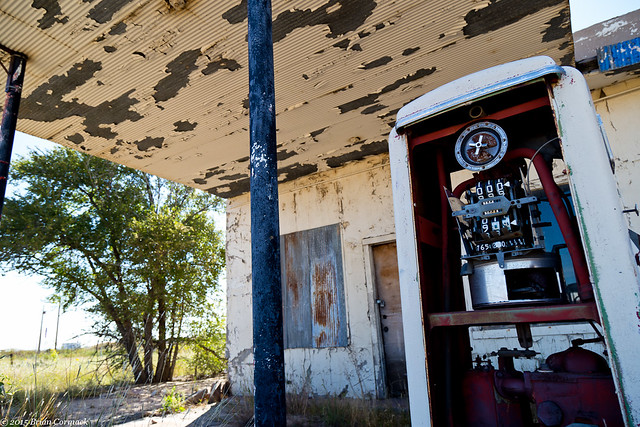
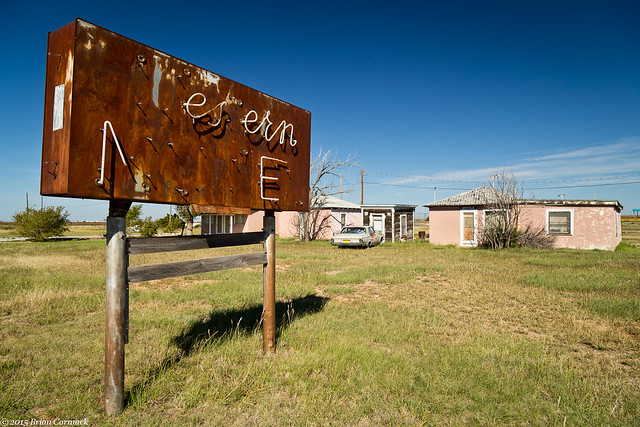
Judging by the trees growing in front of the garage doors, this old auto parts store has been closed for a long time. I looked inside the broken window and was a little surprised to see that the inside of the store still had a bunch of old merchandise inside, untouched as if it had just closed for the day a few hours before. The only way of really telling it had been abandoned were the pieces of the ceiling that had fallen down, and a thick coating of dust on everything.
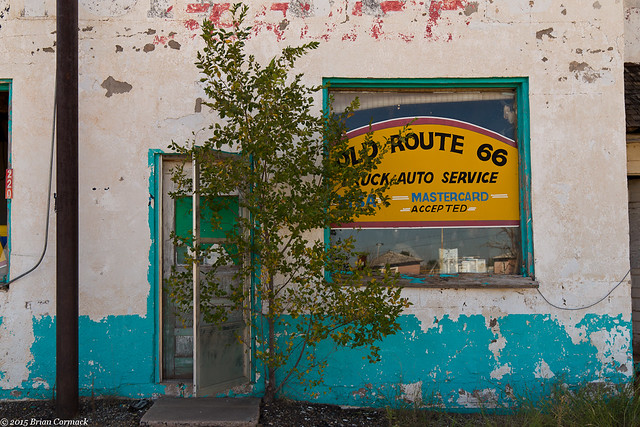
We drove down Route 66 out of San Jon, heading further west. Along the way we stopped at this old gas station, weathering away in the sun.
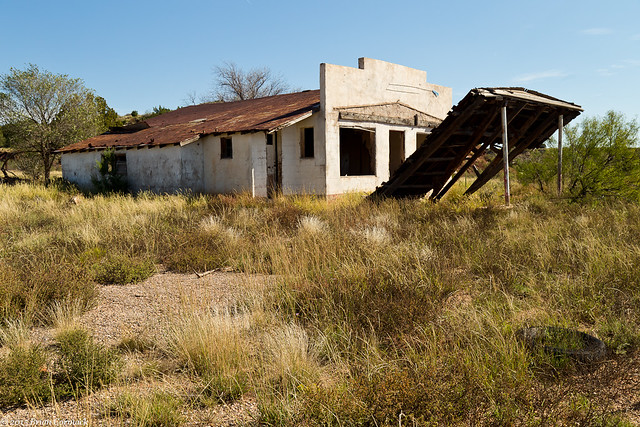
A lot of sunflowers lined the roads in New Mexico and Arizona, which added a pop of color that I was expecting to find in the southwest in the fall. These flowers were growing right along the side of old Route 66, which is in the background of this shot.
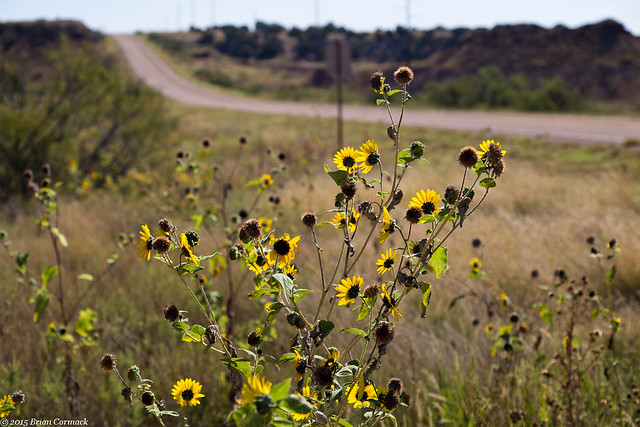
And once the traffic was clear, I ran out into the road to get a better shot of Route 66 (there was no one coming!).
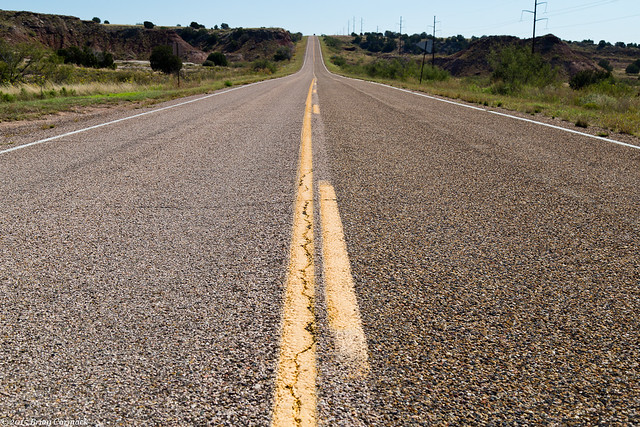
Next we followed Route 66 to Tucumcari. This is one of the most famous towns along Route 66, and it is a quintessential stop for anyone traveling the old road.
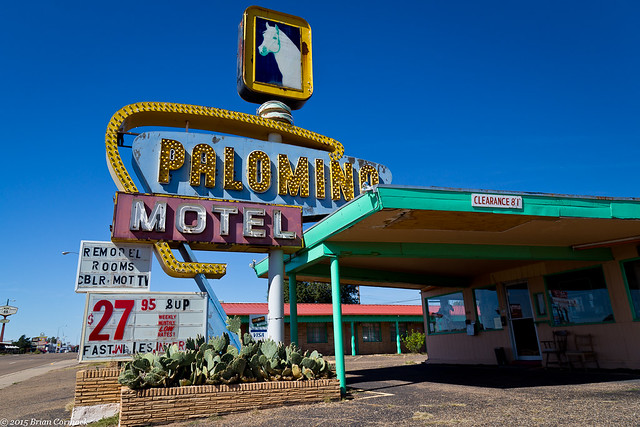
As the largest town between Albuquergue and Amarillo, Tucumcari has long been a popular stop along Route 66. Back in the glory days of Route 66, the town was packed with unique hotels, shops and restaurants. Many of those are still open, and include some of the most iconic buildings along Route 66. We stopped at the TeePee Curios, with the large concrete teepee that you walk into to get inside. The shop is an old gas station and gift shop that was built in 1944. When Route 66 was widened in 1959, the gas pumps were removed but the teepee entrance was added. The elaborate neon sign was added in the 1960s.
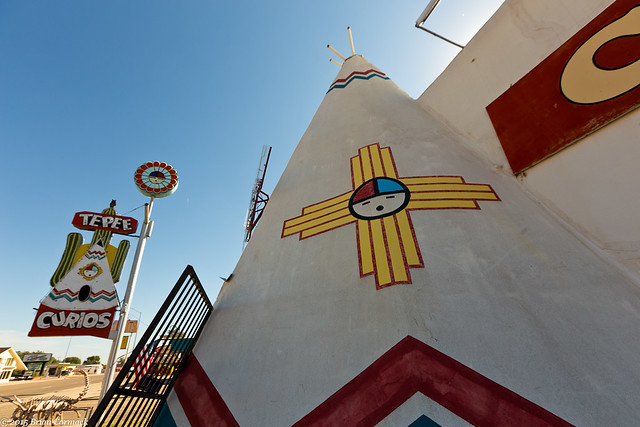
One of the most iconic places on Route 66 is the Blue Swallow Motel, which opened in 1941. The motel has been well-preserved and I wish we could have stayed there on this trip (maybe next time).
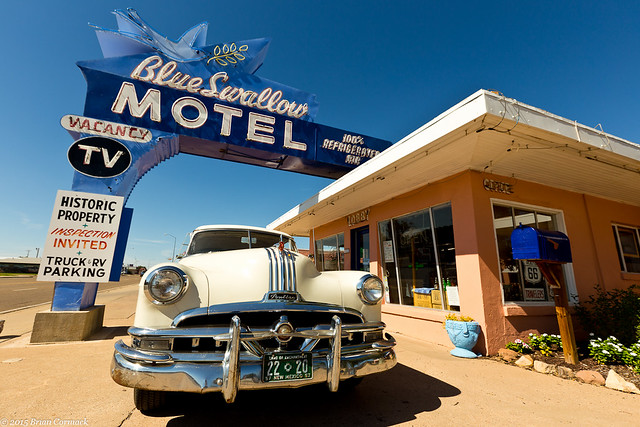
We drove down Route 66 through Tucumcari, stopping at a few more places that had closed but still had up their old signs.
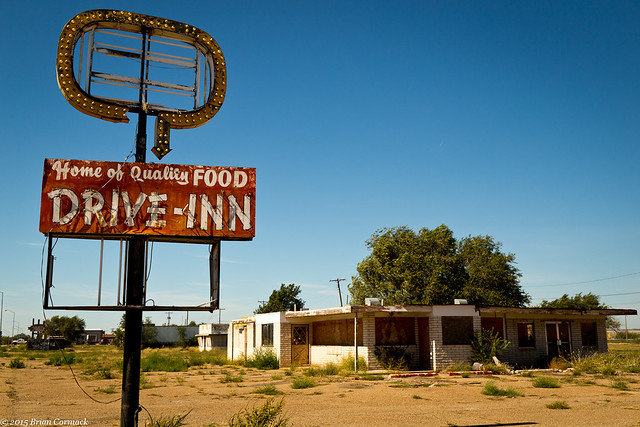
Driving through Tucumcari makes you wish you could have been around to see it during the glory days of Route 66. But it is still one of the more unique towns along the road. We stopped one last time before heading west to see a few more ghost towns.
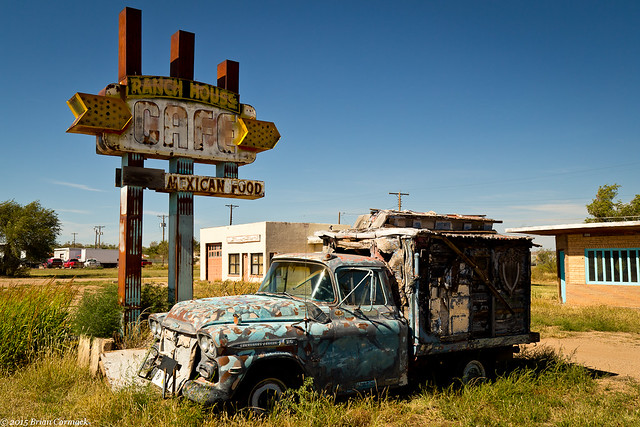

No comments:
Post a Comment